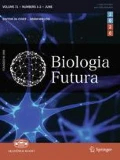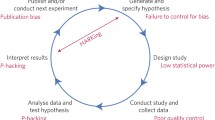Abstract
Scientific enquiry and the communication of science are essential to achieving development goals. The demand for evidence-based policy poses a challenge to maintaining the ethical conduct of science. The modern scientist faces intense competition in light of the changing nature of collaborative efforts, the quickening pace and increasing complexity of research endeavours and a growing emphasis on commercialisation of research results. Academic performance criteria continually change, becoming more demanding and increasing complex to measure. The integrity of the scientific community is challenged by cases of falsification, fabrication and plagiarism. The mass production of science outputs, evidenced by the incredible rise of predatory journals, poses risks for the veracity of science. Yet, scientists are not the only ones driven by performance targets. Under the constant scrutiny of governing boards, research and development funders—both public and private—are increasingly pressed to demonstrate outputs, outcomes and impact. There is an urgent need for independent research but also a need for consensus with regard to policy guidance. Consensus studies expect scientists to make sense of the available science and find a way of presenting the controversies, contradictions and convergence of evidence to guide policy decisions. Policy consensus dialogues can valorise science guidance. These practices adopt multidisciplinary approaches, bringing top-rated scientists from a variety of disciplines around the table to contribute best practice examples, share experiences and lessons learnt against the background of solid critique of existing research.
Similar content being viewed by others
Notes
The famous Piltdown Man scandal had scientists fooled for over 40 years (Radford 2016).
The research record includes data or results that embody the facts resulting from scientific inquiry, and includes, but is not limited to, research proposals, laboratory records, both physical and electronic, progress reports, abstracts, theses, oral presentations, internal reports and journal articles (Eisner and Vasgird n.d.).
Some examples of these practices relate to Jan Hendrik Schön and Robert A. Slutsky (Eisner and Vasgird n.d.). Slutsky was apparently publishing one paper every 10 days for years and including names of many co-authors to mislead editors and cover-up for what later was learned to be a false output (Eisner and Vasgird n.d.; Kennedy 2002).
References
Canales Holzeis C et al (2019) Food systems for delivering nutritious and sustainable diets: perspectives from the global network of science academies. Global Food Security Submission, p GFS_2018_166_R1
Carpi A, Egger A (2019) The culture of science: scientific ethics. https://www.visionlearning.com/en/library/Process-of-Science/49/Scientific-Ethics/161. Accessed 17 Nov 2019
CFS HLPE (2016) Critical and emerging issues. http://www.fao.org/cfs/cfs-hlpe/critical-and-emerging-issues/en/. Accessed 25 Nov 2019
CFS HLPE (2019) High Level Panel of Experts e-Consultations. http://www.fao.org/fsnforum/cfs-hlpe/hlpe-consultation-process. Accessed 25 Nov 2019
CFS HLPE (2019) HLPE—High Level Panel of Experts on food secuirty and nutrition. http://www.fao.org/cfs/cfs-hlpe/en/. Accessed 25 Nov 2019
de Groote I et al (2016) New genetic and morphological evidence suggests a single hoaxer created ‘Piltdown man’. R Soc Open Sci 3(8):160328
Eisner R, Vasgird D (n.d.) Responsible Conduct of Research: research misconduct, s.l.: Columbia Center for New Media Teaching & Learning (CCNMTL) in collaboration with the Columbia University Office for Responsible Conduct of Research
IAP (2019) Food and nutrition security and agriculture. http://www.interacademies.org/37646/Food-and-Nutrition-Security-and-Agriculture. Accessed 25 Nov 2019
Kennedy D (2002) More questions about research misconduct. Science 297(5578):13
Malabo Montpellier Panel (2019) About the panel. https://www.mamopanel.org/about/. Accessed 25 Nov 2019
Martinson B, Anderson M, de Vries R (2005) Scientists behaving badly. Nature 435(9):737–739
McKie R (2012) Piltdown Man: British archaeology’s greatest hoax, s.l.: The Guardian
National Academies of Sciences, Engineering, and Medicine (n.d.) Proceedings, s.l.: National Academies of Sciences, Engineering, and Medicine chronicle
National Academy of Science (1992) Panel on scientific responsibility and the conduct of research. National Academy of Science, Washington
Niemi P (2016) Six challenges for ethical conduct in science. Sci Eng Ethics 22:1007–1025
Radford T (2016) Forensic examination reveals identity of Piltdown hoax prime suspect, s.l.: s.n
UN General Assembly (2013) The right to food, s.l.: UN General Assembly
World Economic Forum (2018) Code of Ethics: Young scientists. World Economic Forum, Geneva
Author information
Authors and Affiliations
Corresponding author
Additional information
Keynote Address: World Science Forum, Budapest, 22nd November 2019.
Rights and permissions
About this article
Cite this article
Hendriks, S.L. Policy relevance and the ethical conduct of science. BIOLOGIA FUTURA 72, 105–111 (2021). https://doi.org/10.1007/s42977-020-00046-0
Received:
Accepted:
Published:
Issue Date:
DOI: https://doi.org/10.1007/s42977-020-00046-0




